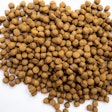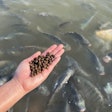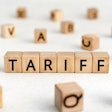U.S. Wheat Associates (USW) and the National Association of Wheat Growers (NAWG) have called for improvements in Canada’s treatment of U.S. wheat classes in a letter to Canadian Minister of Agriculture and Agri-Food, Gerry Ritz, and Canadian Minister of International Trade, Ed Fast.
While there has been positive collaboration between the two countries on wheat policy, the recent WTO Country of Origin Labeling (COOL) decision concerning the labeling of meat highlights Canada’s inconsistency on the issue of treatment of foreign agricultural products, the groups said.
The United States is routinely Canada’s top wheat export market and allows wheat grown in Canada to be graded and traded the same as U.S. wheat in the market. Yet, the Canada Grains Act and Varietal Registration System (VRS) denies U.S. producers that same courtesy. Instead, all foreign-grown grain is automatically downgraded under Canada’s official grading system to the lowest designation, regardless of whether the wheat is an approved Canadian variety or of high quality.
“Our concerns about the unfair regulatory environment that U.S. wheat faces in Canada closely parallel the arguments Canada successfully made in its WTO complaint against U.S. country-of-origin labeling (COOL) requirements,” states the letter signed by USW Chairman Roy Motter and NAWG President Brett Blankenship. “Specifically, the WTO Appellate Body found that the COOL measure was ‘inconsistent with Article 2.1 of the TBT Agreement because it accords less favorable treatment to imported livestock than to like domestic livestock.’ It is readily apparent to us that Canada’s treatment of imported wheat is less favorable than that of domestic wheat through its grading system.”
The two organizations propose that giving the market the freedom to determine origin segregation’s value — rather than mandating foreign grain labeling — not only increases benefits for both sides of the border, but also continues to strengthen the relationship between the two countries, further laying the foundation for a long-term, mutually profitable trade environment.
















